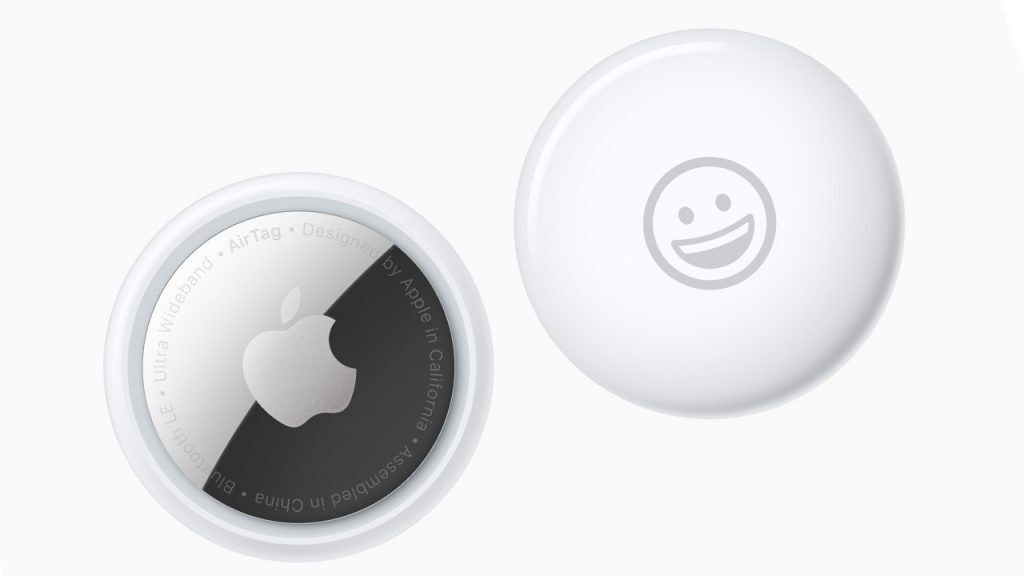To AirTag or not to AirTag. That is the question.
If you’re a cyclist, or are friends with a cyclist, chances are you’ve heard a very familiar tale of woe.
You (or your mate) have just finished a revitalising ride at a park or on the beachfront. Having locked the bike against a railing or on the rack fitted to your car, you head to a local watering hole for some refreshment.
As you return to where you left your bike, you heart sinks, as you see it is no longer there. Some light-fingered sod is now in possession of your bike and unless you’ve taken out insurance, you’re looking at a loss that could be measured in thousands of rands.
But here comes Apple to the rescue with its brand-new Apple AirTags. If you happen to own one of these gizmos you need never lose anything again. Attach it to your keys, your bag, your wallet, your wayward toddler – even your bike – and the AirTag will message your phone allowing you to track its location. This means you can easily track down the bicycle thief who stole your beloved two-wheeled steed using the Find My app on your iPhone.
Sounds great right? Well, there’s a catch. With big tech these days, there always seems to be a catch.
Welcome to the AirTag surveillance network
In this instance, the catch is that the AirTags work by pinging an identifier using Bluetooth. If there are any Apple compatible devices in range, that identifier and its location is sent to Apple’s servers. That’s how the owner of a lost piece property with an AirTag on it is able to find where their property is through the Find My app.
In a rather worrying piece on The Conversation about AirTags, Paul Haskell-Dowland, Associate Dean in Computing and Security at Edith Cowan University, points out that by using an AirTag, a user is tapping into “a global monitoring network containing millions and millions of devices.”
It’s essentially, as he puts it, “an Apple-operated surveillance network in which millions of us are unwitting participants.”
Leaving aside the fact that the AirTag highlights the fact that iPhone users are basically cogs in Apple’s network – if you’re an iPhone user, your device will be used to ping an AirTag in your vicinity if you have Bluetooth enabled – there more worrying concerns.
As Haskell-Downland points out, the device could be a boon for stalkers and if (or rather when) the device is hacked, it could be used for very nefarious purposes. His article is a pretty timely warning as none of these aspects are highlighted in Apple’s PR around the device.
Would you take a chance?
That having been said, though, ask yourself a question – do the risks outweigh the benefits? Do your concerns – assuming you’re an iPhone user – about privacy and data trump the possibility that lost or stolen property could feasibly be recovered?
If there’s one thing all South Africans can agree on it’s the fact that crime – and theft being an aspect of that – is a pretty major concern in this country. On top of that, anyone with a smartphone, a desktop, a console – pretty much every major piece of tech – strikes a bargain with their creators that our data is up for grabs and that privacy is a thing of the past.
While there are several notable – and justified – issues surrounding the use of Apple AirTags, is it all that different from using say, your GPS on your phone or Fitbit? Big Tech has myriad ways of hoovering up data on your devices. The only way to stop it is to purge — delete your Facebook account, get rid of your console and stop using a smartphone altogether — and hardly any of us are going to do that. Hell, most of us don’t even read the terms. and conditions before signing up to a new service.
Ultimately it’s down to each individual user. Yes, there will be folks who find this device annoying – particularly if it canes their data to find a lost item when they don’t even own an AirTag. But others may see it as a risk worth taking. A better risk than, say, losing their bike.




